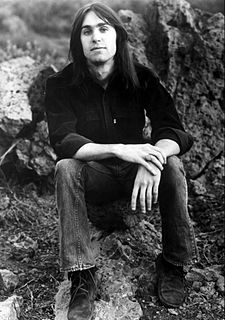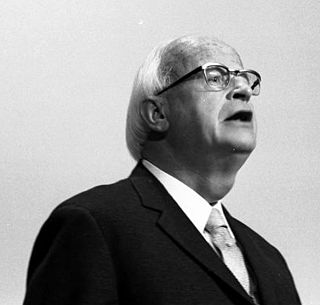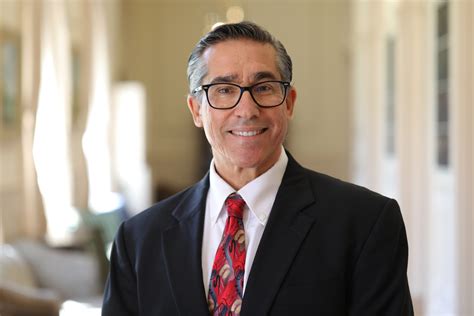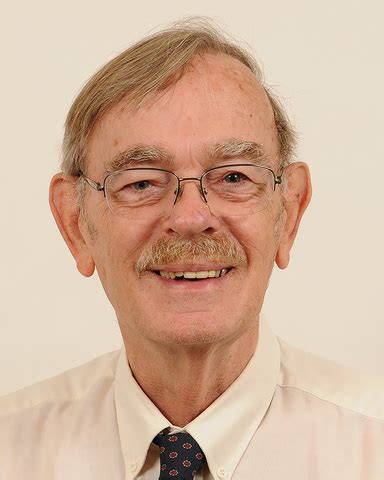A Quote by Dan Fogelberg
I believe in God, but not in any rational or theological scope.
Quote Topics
Related Quotes
Sometimes we can lose the wood for the trees. Some specific issues dealt with in the book [Saving Calvinism]: the scope of election (who is saved?); the nature of the atonement (do we have to hold to penal substitution if we're Reformed?); the scope of the atonement (for whom did Christ die?); whether we have to hold to some sort of theological determinism (God ordains all that comes to pass).
The being we call god is merely a pawn working for a powerful and rational force in some far-off galaxy. This force is trying to weed out people who are irrational by seeing who would be stupid enough to believe in his god illusion so easily. Those that believe in this illusion, he will send to eternal damnation and he will deliver the rational beings, those who stoically refused to believe in a god, to heaven.
I don't believe that God is a fussy faultfinder in dealing with theological ideas. He who provides forgiveness for a sinful life will also surely be a generous judge of theological reflection. Even an orthodox theologian can be spiritually dead, while perhaps a heretic crawls on forbidden bypaths to the sources of life.
Those who say they believe in God and yet neither love nor fear Him, do not in fact believe in Him but in those who have taught them that God exists. Those who believe that they believe in God, but without any passion in their heart, any anguish of mind, without uncertainty, without doubt, without an element of despair even in their consolation, believe only in the God-idea, not in God.
Theology necessitates an image of God as a conscious, rational, supernatural being of unlimited power and scope who cares about humans and imposes moral codes and responsibilities upon them, thereby generating serious intellectual questions such as: 'Why does God allow us to sin?' 'Does the Sixth Commandment prohibit war?'
So much confusion about belief in God, morality, and science arises, not from what people say they believe, but rather from mistaken assumptions about God, morality, and science that they don't know they believe. In Three Theological Mistakes, Ric Machuga, with clarity and grace, explains the genesis of these mistakes and provides the intellectual tools by which we can recover from them.
Raymond Aron ascribes to Weber the view that 'each man's conscience is irrefutable.' ... while [Weber] holds that an agent may be more or less rational in acting consistently with his values, the choice of any one particular evaluative stance or commitment can be no more rational than any other. All faiths and all evaluations are equally non-rational.
I believe in you and me. I'm like Albert Schweitzer and Bertrand Russell and Albert Einstein in that I have a respect for life -- in any form. I believe in nature, in the birds, the sea, the sky, in everything I can see or that there is real evidence for. If these things are what you mean by God, then I believe in God. But I don't believe in a personal God to whom I look for comfort or for a natural on the next roll of the dice.
It is impossible for any rational creature to be happy without acting all for God. God Himself could not make him happy any other way... There is nothing in the world worth living for but doing good and finishing God's work, doing the work that Christ did. I see nothing else in the world that can yield any satisfaction besides living to God, pleasing Him, and doing his whole will.
The rationale for accepting or rejecting any theory is thus fundamentally based on the idea of problem-solving progress. If one research tradition has solved more important problems than its rivals, then accepting that tradition is rational precisely to the degree that we are aiming to "progress," i.e., to maximize the scope f solved problems. In other words, the choice of one tradition over its rivals is a progressive (and thus a rational) choice precisely to the extent that the chosen tradition is a better problem solver than its rivals.
I believe in miracles, but I trust in Jesus. If you believe the Bible, you know that God is a miracle-working God. And God is not limited in any degree nor any respect. He is totally sovereign. Do you believe that? I hope you do. Believe in miracles, but don’t put your faith in miracles. Put your faith and your trust in the Lord Jesus Christ.
We want to believe in the essential, unchanging goodness of people, in their power to resist external pressures, in their rational appraisal and then rejection of situational temptations. We invest human nature with God-like qualities, with moral and rational faculties that make us both just and wise. We simplify the complexity of human experience by erecting a seemingly impermeable boundary between Good and Evil.




































